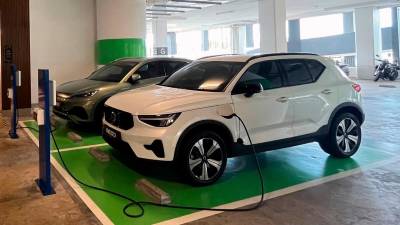PETALING JAYA: EV owners are sharply divided over Malaysia’s new road tax structure – with some calling it fairer and overdue, while others slamming it as arbitrary, confusing and stacked against high-powered models.
theSun conducted a survey over the past few days to gauge views among EV drivers as the revised system, which replaces the current exemption, takes effect in 2026.
Responses were received from participants in their mid-30s, most of whom are working professionals, including system analysts, IT executives, brokers and managers.
Owners of BYD and Tesla accounted for nearly half of the respondents (45.7%), followed by Proton e.MAS (14.3%), with the rest spread across BMW, Volvo, Xpeng, Zeekr and MG.
Many said they switched from internal combustion engine (ICE) vehicles due to cost efficiency, lower maintenance and advanced technology.
Most described the rates as fair and more affordable, some were critical, while others were less convinced that the rates are fair. The debate also questioned whether Malaysia was serious about a clearner and more sustainable transport future.
An MG4 owner and software project manager, Riyadh Ashiblie, 30, said the revised rates offers a fairer reflection of ownership costs.
“The pricing mechanism seems fair because EV owners are not penalised for high-powered motors, since EVs naturally have higher outputs.
“Everyone should pay their share of road tax, so I’m fine with the exemption ending next year,” he said, adding that ICE owners already enjoy government fuel subsidies that EV drivers do not.
Hyundai Ioniq 5 owner Joshua Chong, 28, said his rate of RM120 was manageable but questioned disparities between variants.
“For higher-powered models, it is crazy. You do not drive them at full capacity. Maybe manufacturers should rethink whether such high-powered models are still necessary,” he said, suggesting pricing be factored into the formula.
Business manager and BYD Seal owner Kin Wai, 39, argued that horsepower was the wrong benchmark. He proposed alternatives such as battery size, kerb weight or wheelbase.
Meanwhile, Mercedes-Benz EQE 500 SUV owner YJ, 30, said tax should be pegged to actual usage.
“A better way would be taxation based on mileage, with odometer submissions. Another option is a levy on tyres, since heavier users naturally wear out roads faster.”
